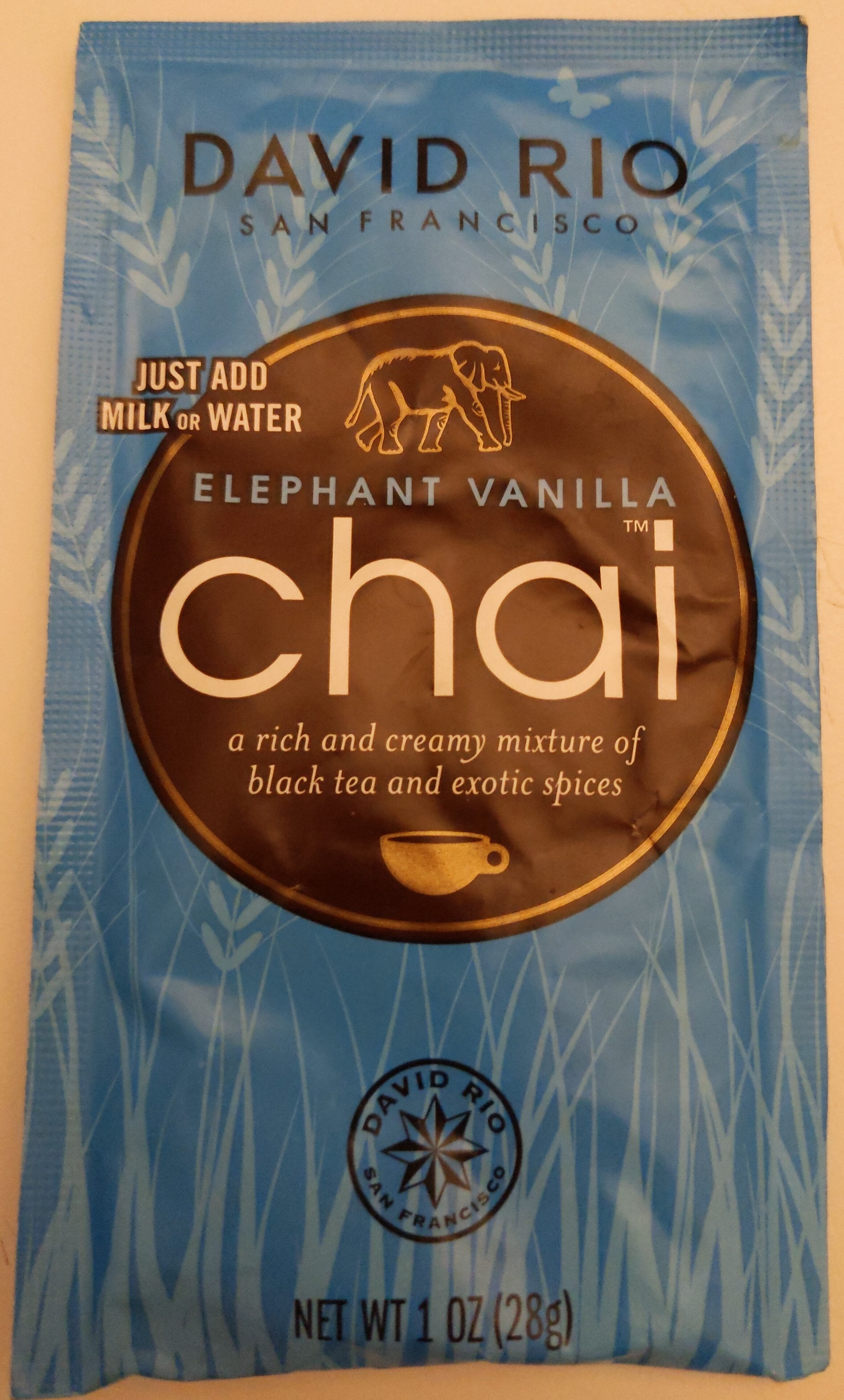Elephant vanilla chai - David Rio
This product page is not complete. You can help to complete it by editing it and adding more data from the photos we have, or by taking more photos using the app for Android or iPhone/iPad. Thank you!
×
Barra-kodea: 0658564255284 (EAN / EAN-13) 658564255284 (UPC / UPC-A)
Markak: David Rio
Brand owner: David Rio Coffee & Tea, Inc.
Kategoriak: en:Beverages, en:Dried products, en:Dried products to be rehydrated, en:Dehydrated beverages
Etiketak, ziurtagiriak, sariak: en:No lactose
Saltzen diren herrialdeak: Espainia, Ameriketako Estatu Batuak
Matching with your preferences
Health
Osagaiak
Food processing
Gehigarriak
Ingredients analysis
The analysis is based solely on the ingredients listed and does not take into account processing methods.
Elikadura
Serving size:
28 g (28 g)
Ingurumena
Ontziratzea
Transportation
Report a problem
Datuen iturria
Product added on by elcoco
Last edit of product page on by isshan.
Produktuaren orria -gatik editatua elcoco.b19dfa7f8a7da0be0a5d6f97e6e4a3ad, openfoodfacts-contributors, org-database-usda, roboto-app.
If the data is incomplete or incorrect, you can complete or correct it by editing this page.




